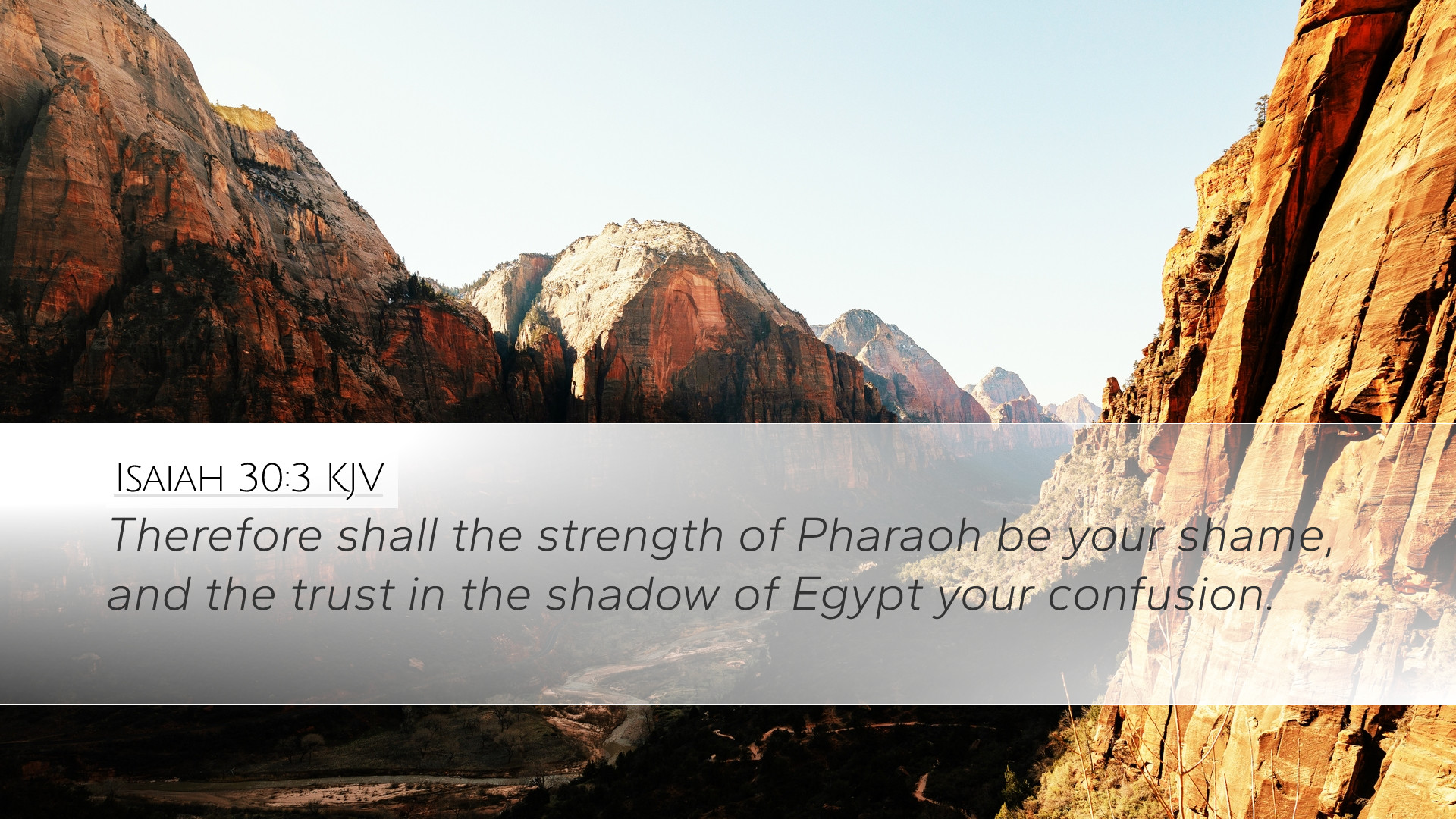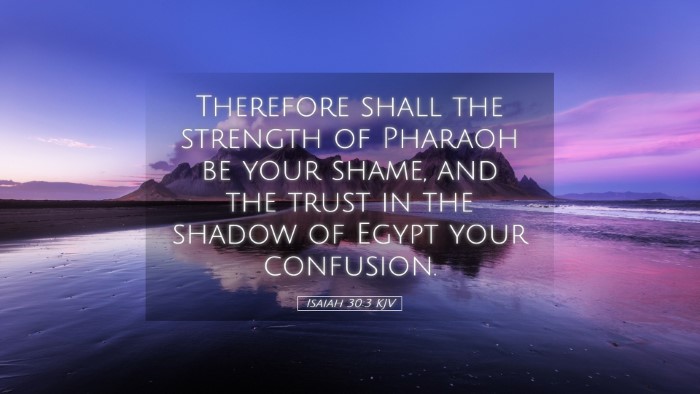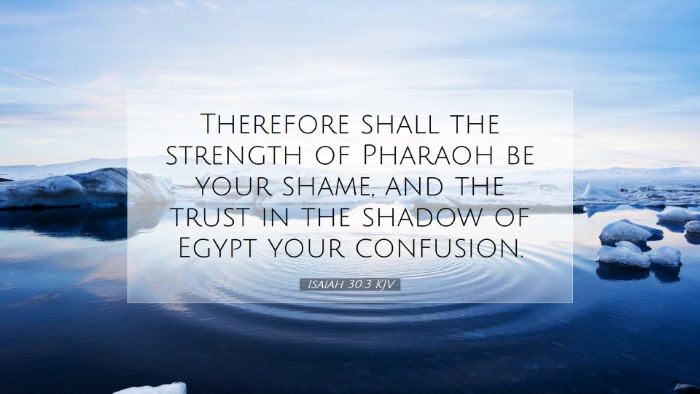Commentary on Isaiah 30:3
Isaiah 30:3 states: "Therefore shall the strength of Pharaoh be your shame, and the trust in the shadow of Egypt your confusion." This verse presents a stark warning against putting trust in human power and political alliances rather than in the Lord. Renowned biblical commentators provide insights that unravel the depths of this prophecy.
1. General Overview
In the context of Isaiah’s prophecy, the political landscape of Judah was tumultuous. The people faced threats from powerful neighbors, leading many to seek refuge in alliances with Egypt. However, Isaiah’s warning speaks to the futility of these alliances and the grave error it represents in reliance on human strength.
2. Matthew Henry's Commentary
Matthew Henry notes that the verse serves as both a reprimand and a prelude to lessons on faith and reliance on God. He emphasizes that the reliance on Egypt, representing worldly powers, leads only to disappointment and shame. Henry explains that Egypt, once a place of refuge for Israel, has now become a source of confusion and shame due to the people's misplaced trust.
Furthermore, Henry draws attention to the metaphor of 'shadows', suggesting that those who lean on worldly alliances enjoy only a transient comfort that ultimately vanishes, leaving them in confusion. This highlights the importance of strengthening one's faith in God rather than seeking temporary solutions through earthly means.
3. Albert Barnes' Commentary
Albert Barnes elaborates that the "strength of Pharaoh" refers to the military and political might of Egypt, which he characterizes as an illusion of safety. Barnes asserts that the Jews' dependence on Egypt reveals a deeper spiritual failure: a lack of trust in God's omnipotent ability to save and protect.
In his analysis, Barnes emphasizes the futility of finding security in human systems. He warns that reliance on Pharaoh’s strength will ultimately become their 'shame', as the very ally they trusted will fail them when they need them most. This passage serves to remind believers of God’s sovereignty and faithfulness.
4. Adam Clarke's Commentary
Adam Clarke focuses on the concept of “shame” and “confusion” as critical terms that depict the spiritual and social ramifications of misplaced trust. Clarke notes that the shame comes from the collapse of those alliances that were expected to bring security and peace.
Clarke highlights that God’s people forgot their covenant promise and thus sought help from the very nations that had a history of oppression. Clarke’s interpretation encourages readers to reflect on the tendency of humanity to forget all God has done in favor of perceived tangible security from worldly powers.
5. Theological Implications
The theological implications of Isaiah 30:3 stress the importance of faithfulness and reliance on God amidst trials. This verse serves as a reminder to pastors, students, and scholars that inherent in the reliance on God is a recognition of His character as a Protector and Provider.
- The Fallibility of Human Institutions: The commentary reveals the fallibility of human institutions and governments. As Clarke points out, the reliance on Pharaoh epitomizes the misguided priorities of God’s people.
- The Nature of True Security: True security, as emphasized by Henry, is found in God, not man. Believers are called to seek refuge in His strength.
- Faith vs. Fear: Barnes’s commentary sheds light on how fear often leads to faithlessness, compelling believers to seek worldly solutions rather than divine intervention.
6. Practical Applications
For contemporary believers, Isaiah 30:3 is a call to self-examination regarding where one places trust during trials. Here are several practical applications derived from the insights of noted commentators:
- Assess your alliances: Consider whether there are areas in life where too much trust is placed in worldly systems.
- Encourage community reliance on God: Pastors can guide their congregations to rely first on God’s promises in times of distress.
- Teach the importance of faith: Emphasizing biblical narratives of divine provision strengthens communal faith.
7. Conclusion
Isaiah 30:3 serves as a poignant reminder that seeking refuge in the oppressive strength of worldly powers leads to inevitable shame and confusion. This verse encourages believers to anchor their trust in God, who does not fail. The insights from respected commentators like Matthew Henry, Albert Barnes, and Adam Clarke collectively urge contemporary believers toward a deeper understanding of God's sovereignty and the pitfalls of political dependence.


